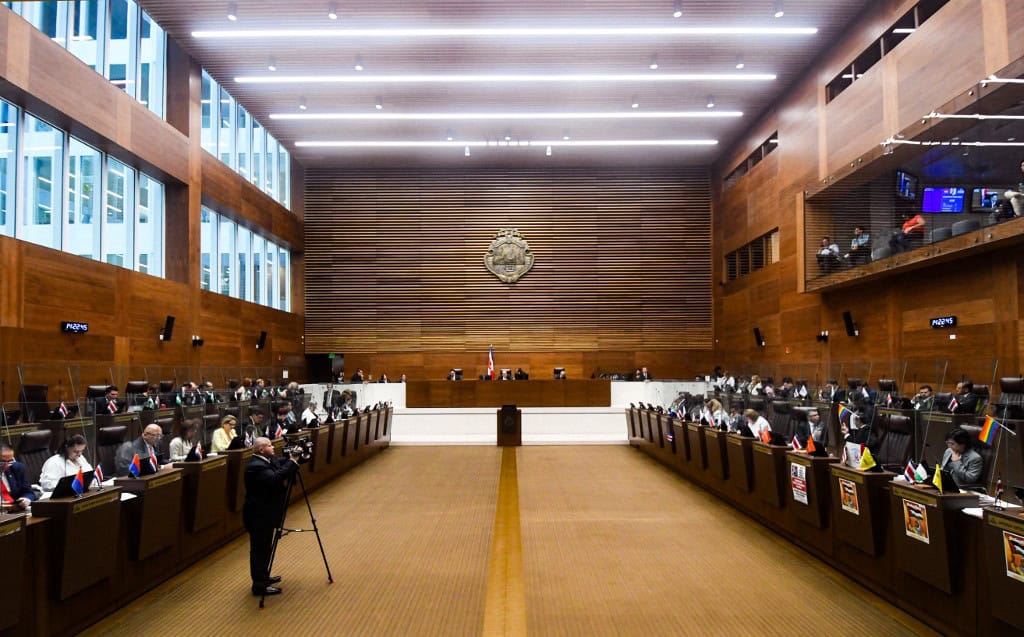Costa Rica’s Congress began today to debate whether to lift President Rodrigo Chaves’s immunity so he can be tried for alleged corruption. The special session was opened by the head of Congress, opposition figure Rodrigo Arias. This is the first time a Costa Rican president has faced a request to remove immunity.
The conservative leader, in power since 2022, would lose his immunity if at least 38 of the 57 lawmakers vote in favor. That would not, by itself, remove him from office. “The accusation process against Mr. Rodrigo Alberto Jesús Chaves Robles is initiated, in order to decide whether the lifting of his immunity is appropriate,” Arias said as he opened the session.
Chaves, 64, is charged by the Prosecutor’s Office with the crime of concusión (abuse of power to benefit someone), punishable by up to eight years in prison. Prosecutors accuse the president of forcing a communications services firm hired by the Presidency to give 32,000 dollars to his friend and former image adviser Federico Cruz.
According to the complaint, the contract was paid with funds from the Central American Bank for Economic Integration (CABEI) using an “apparently” improper procedure. Culture Minister Jorge Rodríguez also faces a request to lift his immunity on the same charges.
This is “an attempt at a judicial coup, a show to delegitimize a government chosen by the people,” Chaves said last week.
Sufficient elements
The president, whose term ends next year, regularly criticizes the Supreme Court, Congress, the Prosecutor’s Office, and the media with populist rhetoric. Chaves announced last week that he would not appear before the plenary on Monday to present his rebuttal so as not to give “a veneer of legitimacy” to the motion.
During the session, the three lawmakers on a special committee that had previously analyzed the motion presented their arguments to the Legislative Assembly. Two members of that committee urged lifting the immunity, while one opposed it.
“There are sufficient technical elements that justify voting yes to lifting the immunity,” said the committee’s chair, opposition lawmaker Andrea Álvarez, during her remarks. “This government has threatened our institutional framework, and if we do not respect the institutional framework, that is where the foundations of our country begin to erode,” Álvarez added.
Political persecution
For his part, ruling-party lawmaker Daniel Vargas, also a member of the committee, recommended that the plenary not lift the president’s immunity. “The accusation does not contain sufficient elements that show probable cause to recommend to the legislative plenary the lifting of immunity. I did not find seriousness and consistency in the accusatory document,” Vargas said.
“I have no doubt that the request by the Prosecutor’s Office to lift immunity constitutes an instrument of political persecution against Rodrigo Chaves,” he added. However, lawmaker Álvarez rejected the claim that the investigation is political persecution against Chaves.
The president “did not provide a single piece of evidence” for that alleged persecution, Álvarez said. On July 1 the Supreme Court approved the Prosecutor’s request to remove Chaves’s immunity. The high court would try the president if he loses it.






